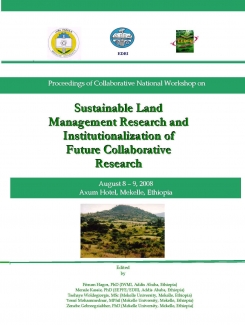FILTER
Displaying 1081 - 1090 of 1172 publications
The efficient governance of information-production is analysed in the context of the bio-technology industry. Here primary R&D generates pure abstract information on the nature of biological solution…
| Book Chapter | South AfricaA framework that can be used to assess the potential impact of Payments for Environmental Services (PES) schemes. Factors that determines the impact of PES are discussed such as additional forest…
| Book Chapter | Central America and Mexico, SwedenThe concept that underlies the interventions of the Global Environment Facility (GEF) International Waters Program is adaptive management at the Large Marine Ecosystem (LME) scale across the sequence…
| Peer Reviewed | SwedenWe examine the effects of schools and parents, the two of the most important sources of influence, on views of human-nature relationship of 6th grade primary school children in China. Adopting five…
| Discussion Paper | ChinaThis publication compiles about 23 research papers that were presented on the national conference hosted by Department of Economics of Mekelle University and sponsored by EEPFE, on August 8-9, 2008 at…
| Discussion Paper | Ethiopia, Global HubThe recreational and aesthetic values of coastal areas have a significant economic impact, and because they are enhanced by coastal protection, the latter should receive top priority in striving to…
| Research Brief | South AfricaThis is a chapter in the new publication "Sustainable Tourism & the Millennium Development Goals: Effecting Positive Change" by The International Ecotourism Society (TIES) which will be launched this…
| Book Chapter | South AfricaThis paper challenges the conventional wisdom that water and sanitation improvements and other preventive health interventions are always a wise economic investment. Costs and benefits are presented…
| Peer Reviewed |